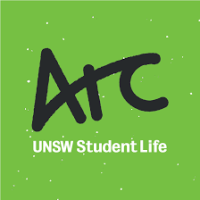
Plagiarism Pitfalls
Turnitin knows all. Turnitin sees all. Turnitin fails all.
Plagiarism is one of the biggest issues that students come in to talk to us about. UNSW policy insists on soft copies of assessments being submitted through the 'originality checker', Turnitin, which are compares your submission against a mega database of EVERYTHING ON THE INTERNET (like websites, journals, and books), as well as all previous submitted works to Turnitin (like your previous essays).
Time and time again, students visit us having plagiarised an essay or an assignment for which UNSW has levelled charges of academic misconduct against them. The main types of plaigarism we see are where students wholly or substantially re-using their own essays from another course, not referencing sources, or sharing essays with a friend who then submits it in their name.
So what's a little plagiarism here and there cost anyone? Answer: plenty. It's not just intellectual theft. This form of academic misconduct can have serious implications for you at university as it can result in a reduced or fail grade in a course, as well as affecting professionally too, such as having to make declarations to an accreditation body.
Thought you were too smart to get caught? So did these guys:
James is a law student. Waking up hungover from a huge night, he realises that his Constitutional Law assignment is due tomorrow. Knowing that he will never finish it in time, he downloads a paper from findfreeessays.com and pulls some of the paragraphs from that paper to use in his own.
Wrong. UNSW busted James for Academic Misconduct when the assignment was put through a routine Turnitin check. James was given a fail for his assignment, and ended up failing the whole course. And not only that: needing to re-do the subject meant he wasn't able to graduate when he had hoped to because of the way he'd organised his final year subjects, he missed out on the graduate job he was hoping for because his WAM went down the drain, and when he came to apply for admission as a lawyer, he had to tell the Admission Board that he had been found guilty of an academic offence while at university.
Richie is an MBA student in the process of writing his major term paper. He stumbles upon the perfect article for his thesis topic. Drooling at the chance to cut hours off his research, Richie uses large chunks of the article, and their succinct explanation of the complex issues the he has to deal with. He changes a few words in the paragraphs he copies, so that the exact paragraph doesn't show up on turn it in, and with a stroke of brilliance, doesn't reference the main article, but instead uses the references that the article uses. Once again, the perfect crime.
Wrong. Like Richie, a lot of the time students get busted for plagiarism because they underestimate their lecturers. These people are professional academics in their field. They know all the articles and discussion that comes out about their field. If you stumble across a perfect article, chances are, so has your teacher. Changing a few words here and there never really hides the fact that you still have copied large chunks out of the article. Hiding your main source and using the articles references never really gives you the level of anonymity that you think it does. In this case Richie was failed in the course and that meant not being able to complete the MBA.
How to avoid plagiarism - as well as just being careful (and honest):
- Don't submit the same work for two different assignments. You'll get in strife for that as well.
- Don't ever lend people soft copies of your work. If they appropriate it for their own purposes you can be considered guilty of misconduct yourself.
- Don't be tempted to leave a few quotation marks off here and there because someone has written what you would like to get credit for saying. Acknowledge where credit is due.
- If something has happened which affects you to the point where you're thinking it would be simpler to cheat, that's when you need to email your teacher and negotiate an extension. If it is serious, get your supporting documentation (eg a doctor's certificate), contact your tutor or lecturer and, when you're logged into myUNSW, apply for special consideration at my.unsw.edu.au/student/atoz/SpecialConsideration.html. The uni is a lot more sympathetic to students who ask for help when something has gone wrong than those who cheat.
- Basically don't be a dickhead and respect other people's work.
Use your brains to study, not come up with creative ways to try and get around the rules.
Resources
The Learning Centre
Hit up The Learning Centre for help with research and referencing.
UNSW Policy
Check out UNSW's Student Misconduct Procedure here.
Need more information?
If you are a UNSW student and Arc member we can give you free legal advice. Send us an email, book an appointment with us here, or check out our Plagiarism Tool Kit

Legal & Advocacy

